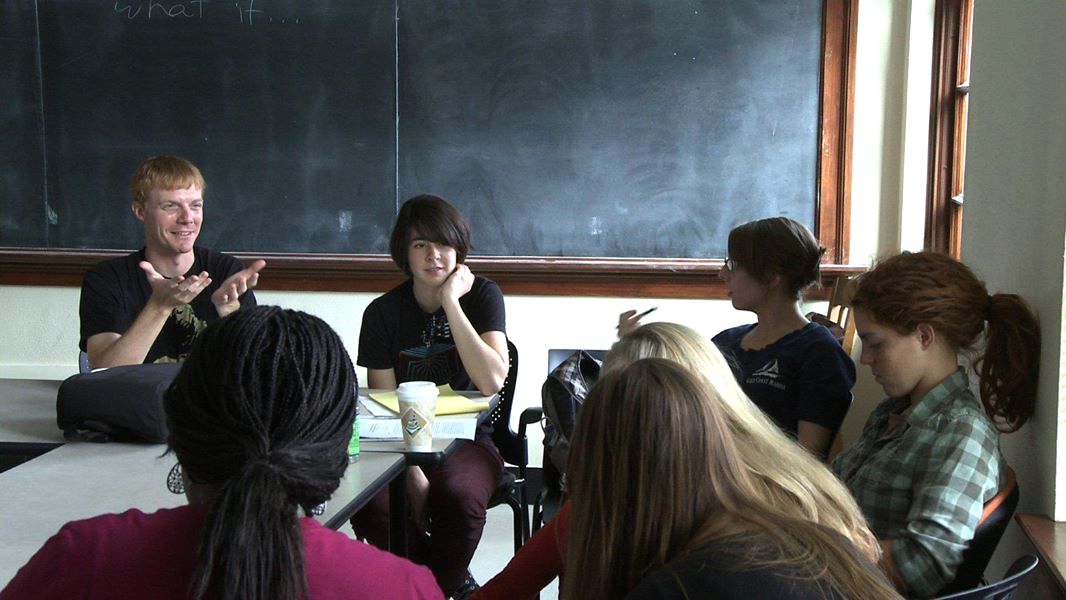So, the latest Oprah Book Club phenom has come under fire as a fraud. The Smoking Gun has called out many factual discrepancies in James Frey’s A Million Little Pieces. Now, I haven’t read the book or the accusations — nor do I plan to — so, if you’re looking for commentary on that, you’ll have to look elsewhere. The whole to do has gotten me thinking about language and reality, so I’m just using the controversy as an occasion to talk about words.
“The limits of my language are the limits of my world” — Ludwig Wittgenstein
I realize that the fact that Frey fabricated some of the events in his “memoir” is less of an issue that whether or not he intentionally duped his readers (the real issue isn’t about the use of language; it’s more about fraud and dishonesty), but the issue is the same one all books, nay, all recorded history faces to some degree. The New Journalism — that strain of participant/observer reporting brought to the masses by Tom Wolfe, Hunter S. Thompson, et al. — use to come under fire for this stuff all the time. Critics wrote that it was difficult to distinguish between fact and fiction. Well, when isn’t it?
I don’t want to fall too far down the infinite regress of questioning the nature of reality because at some point you have to just accept some things as real, others as inconclusive, and get on with your day, but given the shifty nature of language and its tenuous tether to the physical world, aren’t they being a little harsh on Mr. Frey? In an uncharacteristic foray into literary criticism, architect Rem Koolhaas wrote the following a decade ago, and I believe it bears quoting at length:
We live in a world of fictions of every kind — mass-merchandizing, advertising, politics conducted as a branch of advertising, the instant translation of science and technology into popular imagery, the increasing blurring and intermingling identities within the realm of consumer goods, the pre-empting of any free or original imaginative response to experience by the television screen. For the writer in particular it is less and less necessary for him to invent the fictional content of his novel. The fiction is already there. The writer’s task is to invent the reality.
I know A Million Little Pieces isn’t a novel (though it was allegedly rejected as such by a dozen publishers), so Mr. Frey wasn’t supposed to “invent the reality,” but aren’t all words suspect?
“A distinction between ‘fact’ and ‘fiction’,” literary theorist Terry Eagleton wrote in his central work, Literary Theory, “seems unlikely to get us very far, not leats becasue the distinction itself is often a questionable one. It has been argued, for unstance, that our own opposition between ‘historical’ and ‘artistic’ truth does not apply at all to the early Icelandic sagas. In the English late sicteenth and early seventeenth centuries, the word ‘novel’ seems to have been used about both true and fictional events, and even news reports were hardly to be considered factual.”
Okay, as a lover of language and its power, I’m not skeptical of all words. As a matter of fact, quite the contrary: I think words are reality. The Sapir-Whorf hypothesis states quite simply that language does not describe reality; it creates it. If I tell you about a situation, the reality of that situation to you is whatever I tell you. Therefore, the language I use in the telling doesn’t describe reality; it creates it. Nietzsche made a similar point by referring to any so-called “truth” as a “useful fiction.”
Yes, that’s certainly the other extreme. My point is that people often get all up in arms over situations that they don’t even notice in another context. Does Michael Moore tell the truth? Does George W. Bush? Does Bill O’Riley? Does Al Franken? Does Alex Jones? Does Oprah?
Who cares?
When Kanye West lambasted Bush on CNBC, my dad asked me if I agreed with his sentiments. I told him that agreeing with him or not wasn’t the point. The point was that someone broke through: Someone threw the hammer though the screen. Someone broke the trance. The “truth” of Kanye’s words is irrelevant. The point is that it was a move toward a diversity of viewpoints.
In Ray Bradbury’s book Fahrenheit 451 — which is still relevant today in the worst way — the character Faber names Three Necessary Things:
- Quality of Information.
- Leisure to Digest It.
- The Right to Carry Out Actions based on the Interaction of the First Two.
There are two points here. One is that we accept fiction as “truth” everyday. The other is that in order to even make a distinction between fact and fiction, we need a diversity of information (i.e., Faber’s ..1 Necessary Thing — an idea that comes from a novel, by the way).
Nietzsche also said, “Not that you lied to me, but that I no longer believe you, has shaken me.” Isn’t that really the reason everyone’s so pissed at Mr. Frey?

